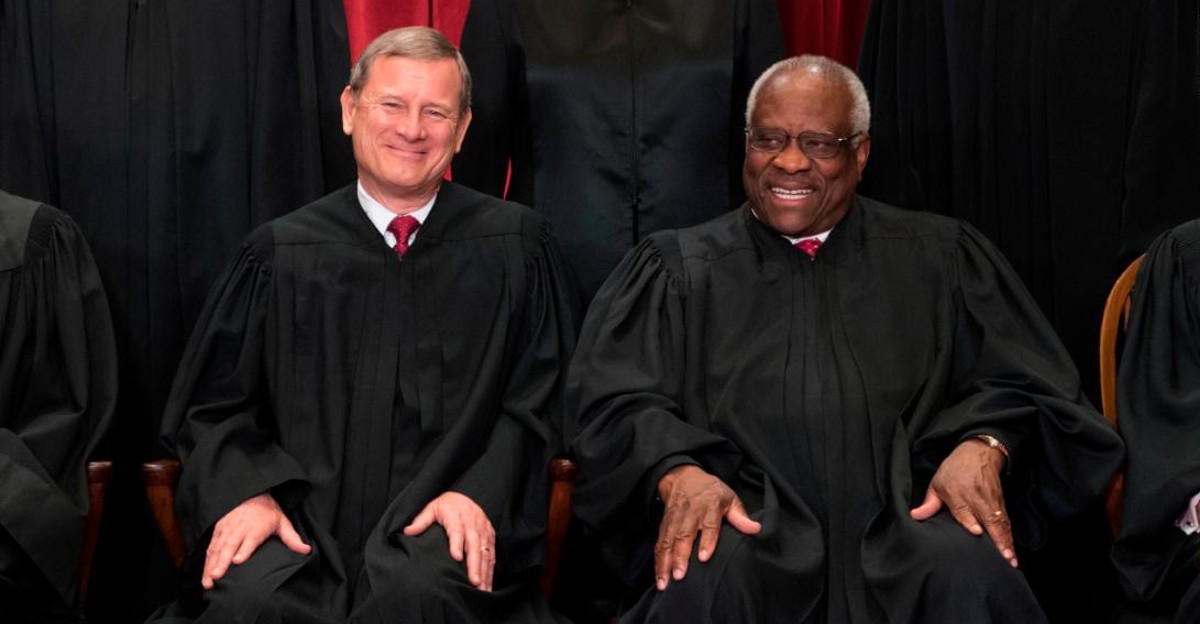OPINION: This article may contain commentary which reflects the author's opinion.
The U.S. Supreme Court will begin oral arguments this week over a law that has protected big tech companies from lawsuits and prosecution for content posted by their users. The ruling, which is expected in the coming months, is being watched as it could upend rules that have governed the internet for many years.
“Section 230 is seen as a fundamental law of the internet and considered inviolable by its staunch defenders. Section 230 was part of the Communication Decency Act, an anti-pornography law signed in 1996, that helped set the rules of the road for the internet, which was still in its infancy as an online playground for all. The idea was to protect the then embryonic internet sector from cascading lawsuits and to allow it to flourish while encouraging tech companies to moderate their content,” Breitbart reported.
“At the time most of the attention went on limits put on sexual content, a part of the bill that was backed by then-president Bill Clinton and that was later struck down by the Supreme Court in a landmark case. But inserted into the legislation was Section 230 which stated that ‘no provider or user of an interactive computer service shall be treated as the publisher’ or hold responsibility for the content that came from an outside party. Under the protection of Section 230, Facebook, Instagram, Twitter, or YouTube became the conduits of a world conversation without ever being at risk of a lawsuit by someone taking offense at a tweet or a controversial video,” the outlet added.
Professor Adam Candeub, who led the National Telecommunications and Information Administration under President Donald Trump, is warning the case risks strengthening Big Tech’s legal defense in favor of censorship.
The Supreme Court will hear oral arguments in the case, Gonzalez v. Google, next month. The case is significant, as it is the first time Section 230 of the Communications Decency Act (CDA), the law that Big Tech uses to shield itself from liability in censorship cases, will be considered by the nation’s highest court.
In an article for the Federalist Society, Candeub warns the case, which seeks to make tech companies liable for carrying dangerous speech, is actually an argument for expanded Big Tech censorship.
He wrote:
The Gonzalez lawyers are concerned about insufficient content moderation, not just of terrorist activity, but also of constitutionally protected hate speech. This leads them to advance inconsistent positions. In their cert petition and merits brief, they argue for limiting Section 230(c)(1) with respect to targeted recommendations. But in an amicus brief submitted in the constitutional challenge to Florida’s social media law, which limits platforms’ ability to censor content in a viewpoint-discriminatory manner, the same legal team argues for expanding Section 230(c)(1) to protect platform censorship. The parties in Gonzalez v. Google may not give the Court the opportunity to fully consider Section 230, as both petitioners and respondent seem, in certain respects, to be on Big Tech’s side.
Candeub argued that the Court’s decision to strengthen or weaken Big Tech’s legal basis for censorship will depend on how it analyzes the “three-prong test” of Section 230.
Google’s three-prong test extends Section 230’s platform protection from suits alleging unlawful content in platform users’ posts to suits by users themselves alleging platforms’ wrongdoing that somehow involves user content. Courts employing a version of this test have used Section 230(c)(1) to block users’ suits for the platform’s fraudulent statements concerning content moderation policies, violation of contract obligations concerning platforms’ duties to publish content, and civil rights claims for wrongful account termination.
The Supreme Court must closely analyze the three-prong test because parties have converged on it in a rather strange way. Gonzalez’s petition for certiorari sought review of the “traditional editorial function” interpretation of Section 230(c)(1) which lower courts have drawn from misreading Zeran—and that was the question on which the Supreme Court granted review. Then, the Gonzalez plaintiffs submitted an amicus brief in the State of Florida’s certiorari petition appealing the 11th Circuit’s ruling striking down parts of the Florida social media law, S.B. 7072. In their amicus brief, the Gonzalez plaintiffs urged that the traditional editorial function interpretation preempts the Florida social media law—an argument Big Tech has made often and vociferously. It is difficult to see how such an argument helps the Gonzalez plaintiffs at all.
The case is Gonzalez v. Google LLC is expected to have a decision by June.
